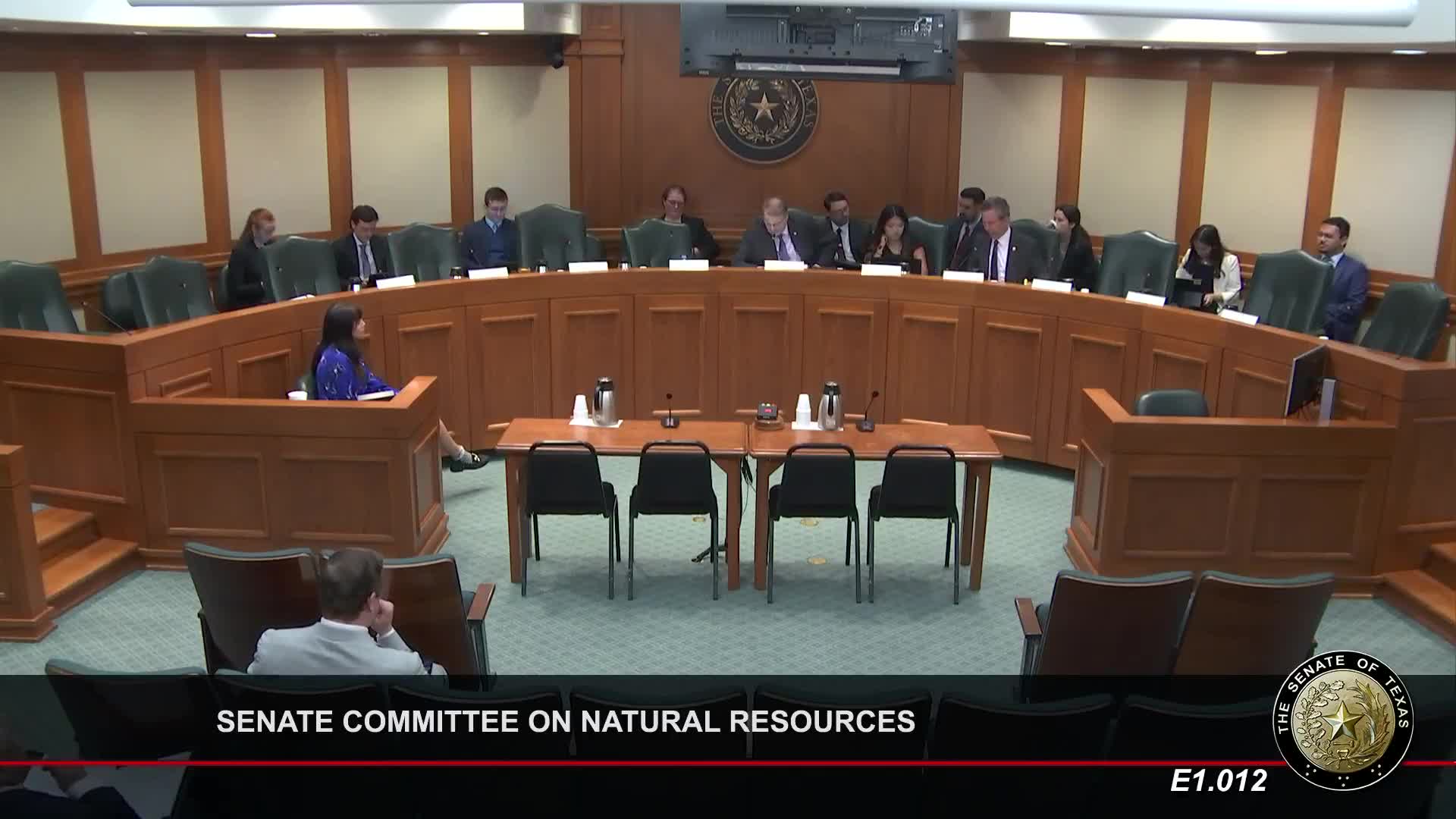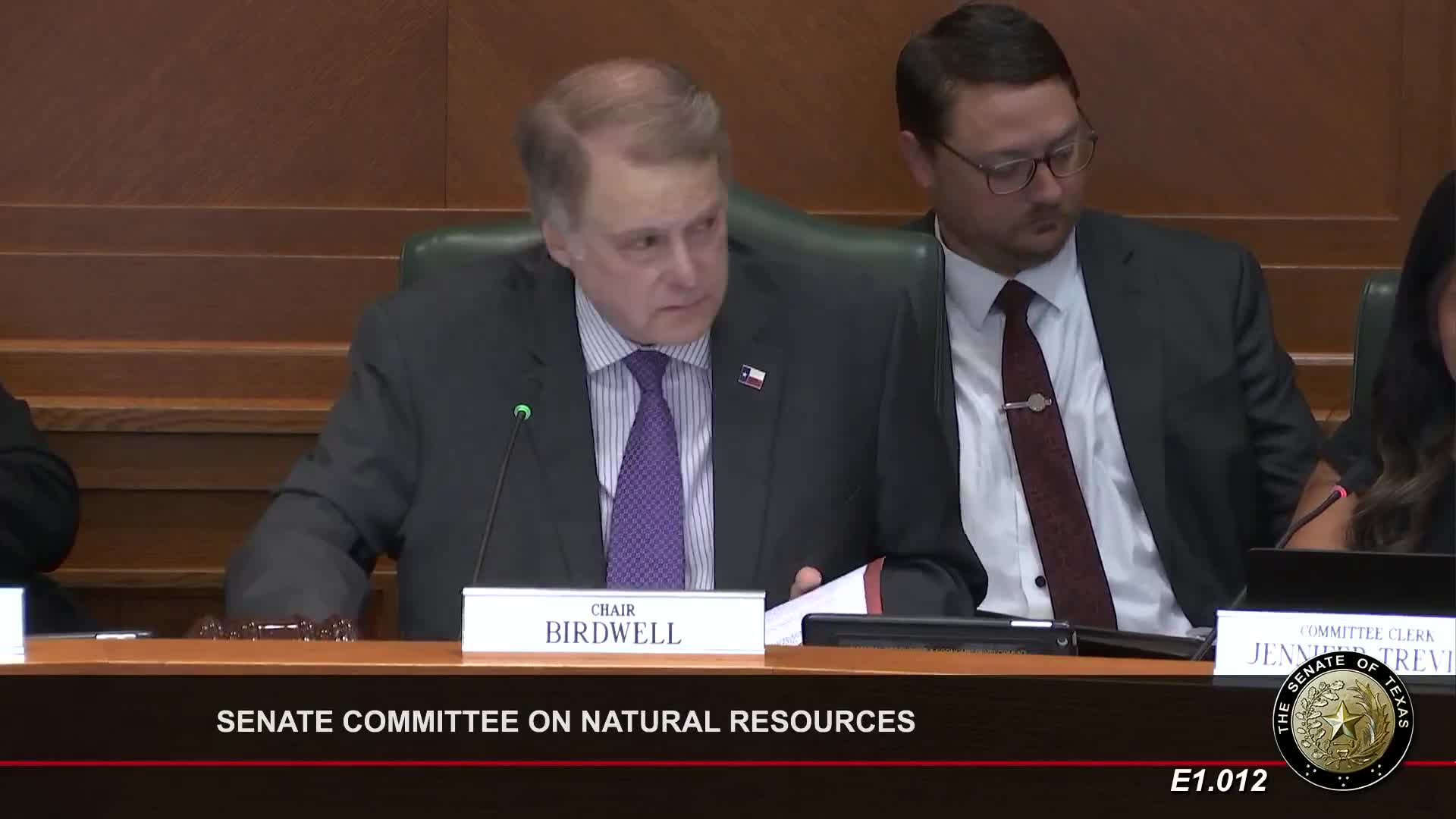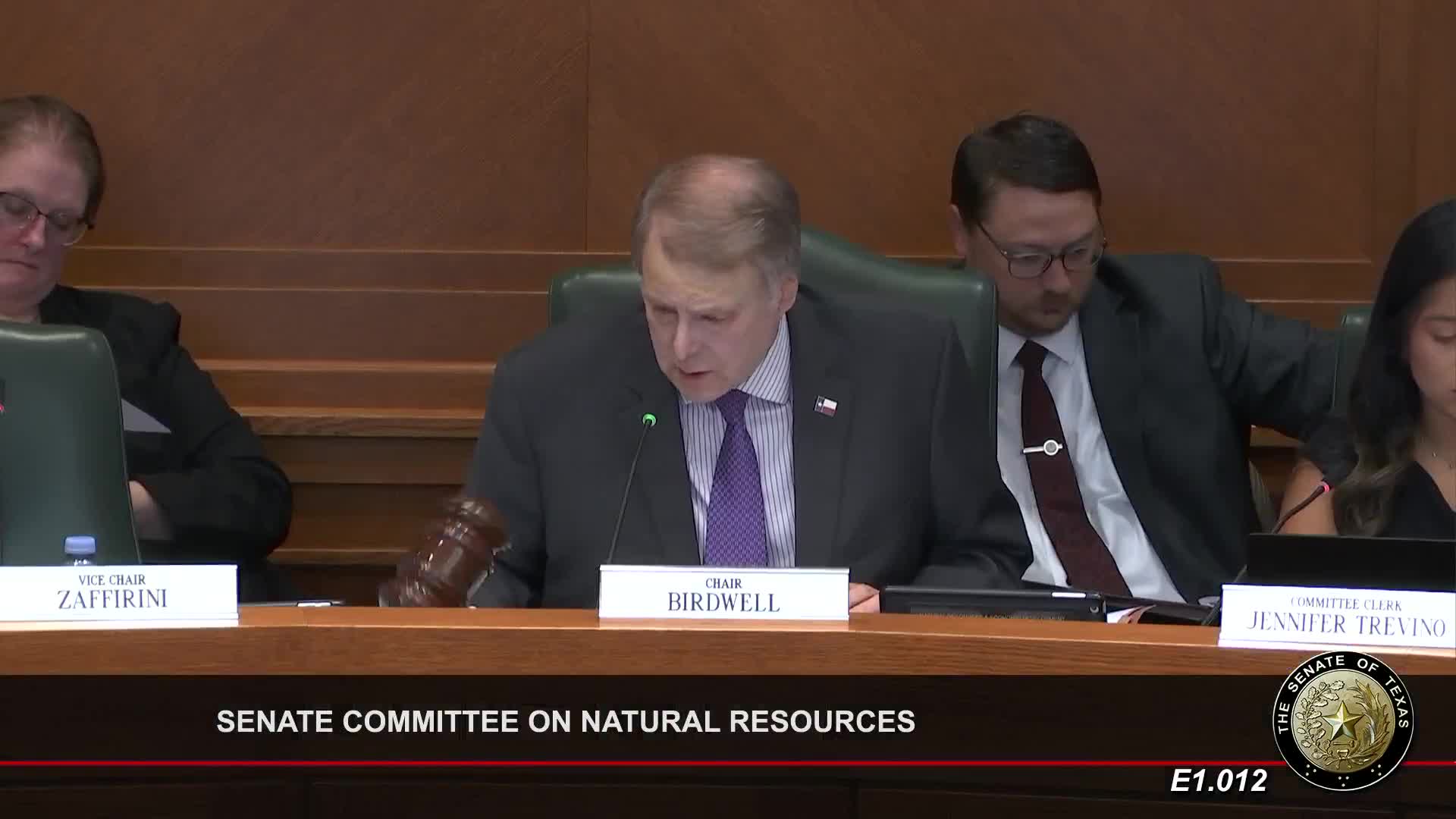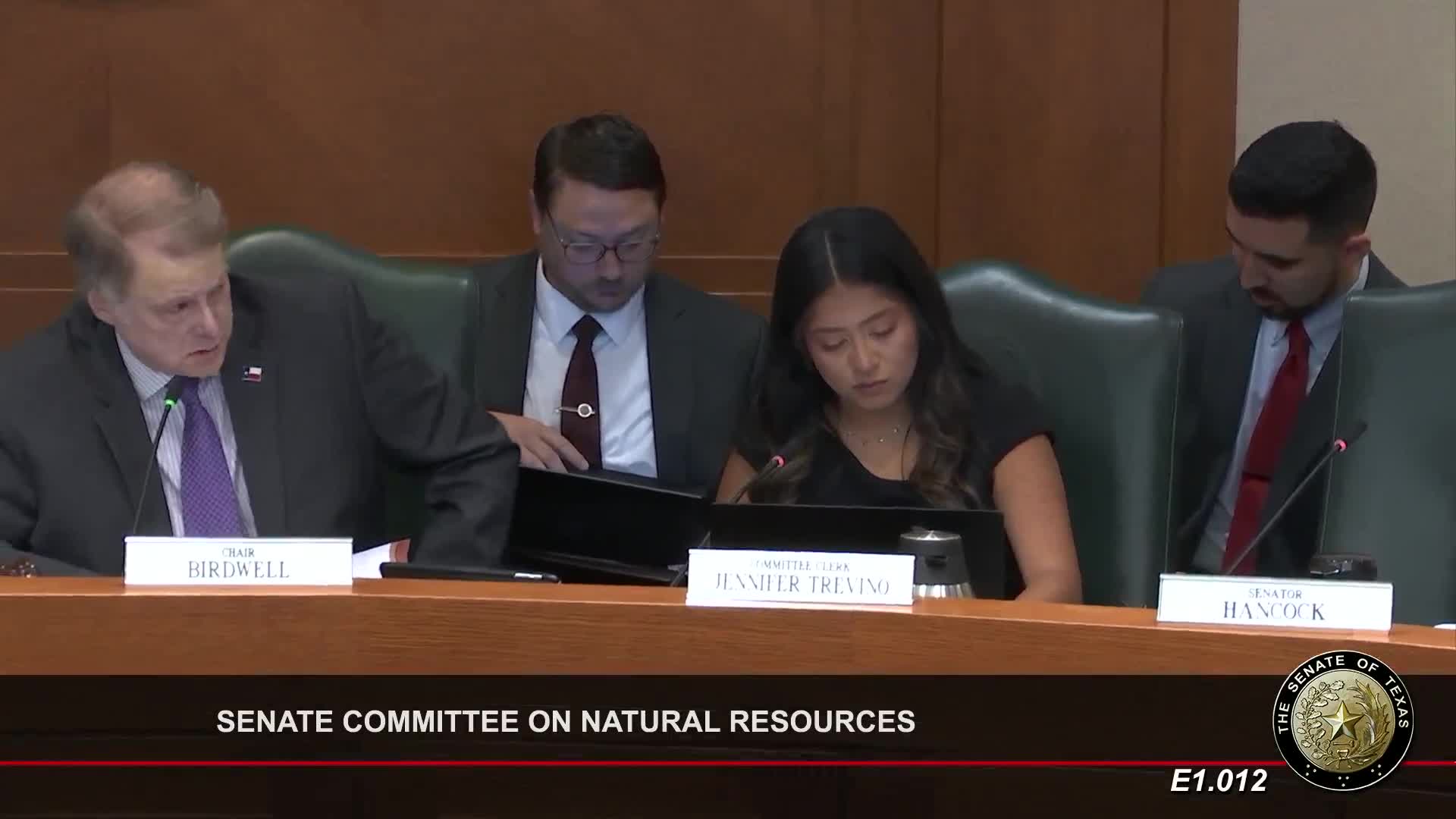Article not found
This article is no longer available. But don't worry—we've gathered other articles that discuss the same topic.

Senate committee hears bill to bar counties from requiring cash bonds for pipeline construction

Committee reviews bill on Gulf Coast Protection District gates and leadership appointments

Bill would let TCEQ accept third-party or virtual inspections for proposed Class I injection wells

